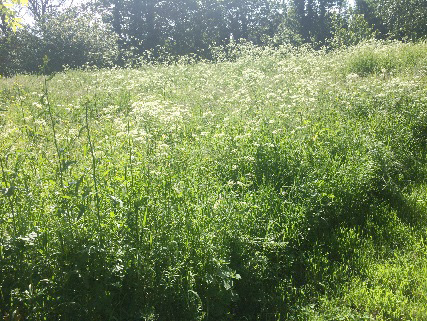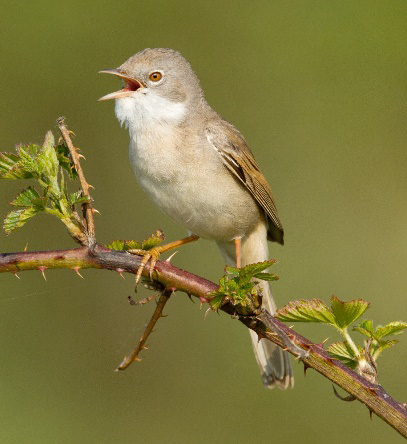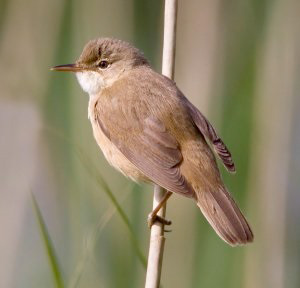From Africa to the Old Kent Road
by Dave Clark, Ornithologist
10 years ago I did some bird surveying for the council at Burgess Park and last week I had a revisit. Wow I was impressed! Blown away by the positive changes that have occurred in the interim.

Wildflower and meadow areas buzzing and singing with life, amenity grassland merging seamlessy into nature friendly areas. People working out with butterflies dancing around their feet. No inaptly named so-called ‘eco-zones’, just a park working with nature. All this in an urban area close to the centre of London.
The beloved Cockney House Sparrow which has lost 60% of its urban population since the 1970s is thriving here, not just picking up scraps from around the cafe but flitting amongst the meadowlands for live food for their hungry chicks.

I found at least 30 (last time just a pair) and to put this into some kind of context there are no Sparrows in Peckham Rye Park nor Dulwich Park. Similarly the Starling population, compared to other local urban spaces, is abundant. This lovable roguish street urchin of a bird, once so common it was deemed a pest, has suffered 66% losses since the mid-70s and is now a red-listed species, i.e. a species of highest conservation concern.
What was really exciting was finding seven different breeding territories of birds that had flown all the way from Africa. Five male Whitethroats busily displaying amongst the meadows and two Reed Warblers, guess where – in the reeds surrounding the lake. Both of these species travel from the Sahel, a region between the Sahara desert and the Savanna, to breed here in the UK. To find them so close to the centre of London is uncommon and a pleasure. The scratching sound of the Whitethroat and the gurgle of the Reed Warbler is deeply resonant of the exoticism of a faraway continent. Their joyous life affirming songs showing that nature can survive despite what obstacles we throw at it.

Well done, you should be proud. Burgess Park is an example of what can be achieved in an urban inner city area when ecological concerns are placed at the forefront of the agenda and not left at the bottom of the priority pile. Nature does not pick nature reserves. Nature is all around and can flourish with some care and attention. Praise should be given to Greg and his gardening team for being a large part of this environmental success despite having only limited resources and despite having to battle the conflicting interests that public parks bring.
So is this just a nature lover banging on …
Er … nope … the maintenance and improvement of the health of urban green spaces is paramount for all of us not just nature. 80% of us live in cities for a start and we also know that access and proximity to nature is beneficial to our physical and mental well being, reduces stress and reduces crime. By making nature more visible and audible the easier it becomes for people to engage with it. Engagement with nature not only brings joy but also increases our care for our environment.
We can deny nature but we can’t get away from it, it’s the air we breathe, the food we eat, the water we drink. It’s incumbent on all of us to maintain its health.
Well done again!
